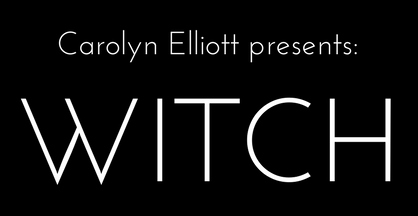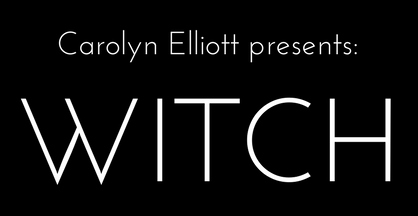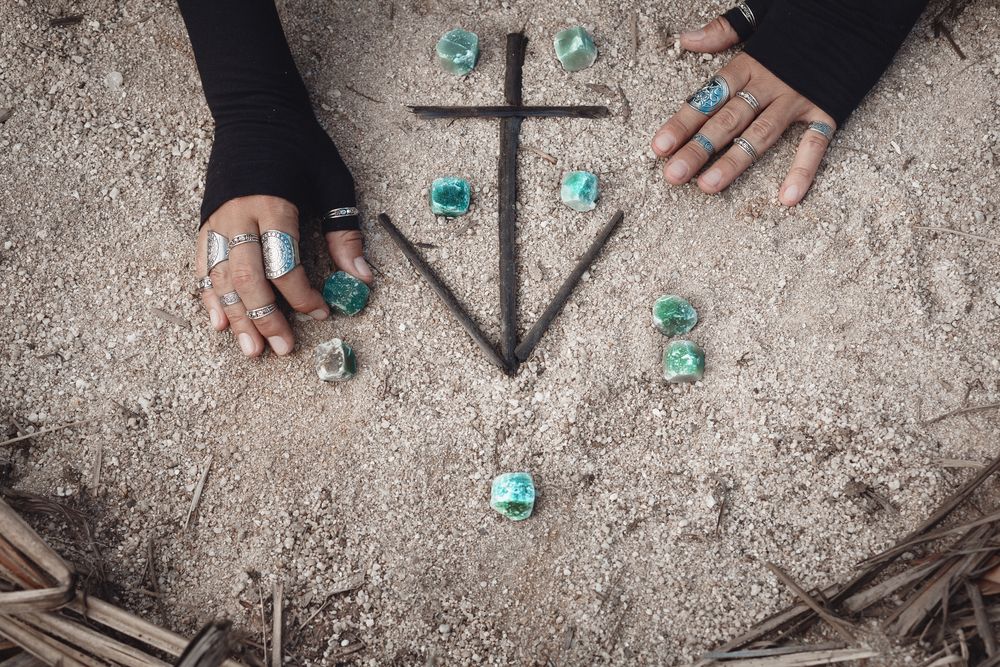by Dr Catherine ‘West’ Winther
Modern witchcraft is a strange beastie.
The growing popularity of witchcraft is a wonderful thing for witches, it blesses us with much better P.R. than we have had for the last few hundred years or so.
However, there is a downside to this surge of interest and that is witchcraft being seen as more a fashion choice than a power.
Let’s just be clear on two things: first, fashion is fantastic power but it does come and go; second, the heart and power of witchcraft will always be there, untouched by time or fashion.
The argument is academic though.
Witchcraft has a built in protective mechanism; if people toy with the power of witchcraft without understanding it and respecting it, the craft will quickly teach them a lesson or three.
Nothing in life comes without consequence.
Witchcraft is an ancient tradition and power, but sometimes this long history can encourage people to become stifled and draconian.
There are many books and teachers that treat witchcraft in a ridged, overregulated, and colour-by-numbers way.
This approach is often accompanied with fearmongering. It is important to learn the rules before breaking them.
However, a common theme among my clients and fellow witches is a reticence and/or fear about breaking these rules. This leads to a distrust or misuse of intuition.

To explain fully, I will provide an example of a binding spell I performed for a client. (This client has given explicit permission to discuss these details.)
Naturally, I started gathering the right herbs: blackthorn, pine, rowan, myrrh, goofer dust etc. When starting out, all witches should learn the right herbs for the right task.
For example: hemlock for binding, rose for love, pennyroyal and basil for money. This is all very helpful but there are times when it is important to set aside what you know and listen to the tools themselves; it is important to use your intuition.
Despite what you might read, you don’t need fancy tools or rare herbs. The only reason our ancestors would have had a separate herb knife in the kitchen was because some herbs were poisonous.
Neither the God or the Goddess will mind if use a silver or gold knife, or if you use the rarest of herbs. What they care about is your intent and respect.
If you feel judgement over anything superficial then walk away. Superficially focused energy is not to be engaged with.
Take the time to listen to your tools—this includes what’s simply in your garden and kitchen.
Referring back to my client, I needed to do a binding.

But as I sat with my usual tools and herbs something felt off, so I backed away and reflected on what and why. I leaned into and meditated on the ‘strangeness’.
As I was meditating I caught a very strong scent of lavender despite there being none in my room at the time. Meditating is one of many ways to improve our spell craft .
Lavender is such a power herb for me. It reached out and spoke to me during the meditation.
IT wanted to be used as the main binding ingredient. Logically, this was odd. Lavender is not typically a binding herb. But my heart and soul said to do it.
The genius loci of the lavender explained to me that it was not only very powerful and very effective for ANY spell work but also, by including unexpected elements in a spell, it could help yield better results.
Wisely chosen and unexpected ingredients can mean a spell is more powerful and resilient, especially if the target is casting counter magick.
Lavender also offered a very loving way to bind. Lavender bound the target to healthy actions and healthy directions that were in everyone’s best interests.
This spell ended up being far more effective and powerful than if I had just used ivy to bind the negative actions.
In general, growth-oriented spells tend to pack more punch than spells focused on stillness.
Nature responds to movement.
The lavender binding stopped the negative and toxic by enhancing the positive. That’s the kind of magick I want to work; rebel magick.
Trust yourself and trust Mother Nature to do what she does best; support wild and loving evolution through the flow of life and magick.
Witchcraft is an art form. Don’t forget to talk to your tools and remain open to working with them in new and different ways. It will help keep your magick strong and fresh and power your craft.
IN CONCLUSION
If this essay resonates with you, please join our WITCH email list by using the forms on this website so we can stay in touch.
About the Author:
 Dr. Catherine ‘West’ Winther is a retired psychologist and passionate LGBTQIA feminist who comes from a long family line of of creatrixes, witches, and wolves. Through her online coven at WeaverTarot.com she offers readings, spell-craft, curios, and counselling. Her passion is holding sacred shadow spaces and fostering alchemy through conversation. She aids healing and growth through encouraging big play, big magick, big nature, cackling, sensuality, and creativity.
Dr. Catherine ‘West’ Winther is a retired psychologist and passionate LGBTQIA feminist who comes from a long family line of of creatrixes, witches, and wolves. Through her online coven at WeaverTarot.com she offers readings, spell-craft, curios, and counselling. Her passion is holding sacred shadow spaces and fostering alchemy through conversation. She aids healing and growth through encouraging big play, big magick, big nature, cackling, sensuality, and creativity.
images: shutterstock







